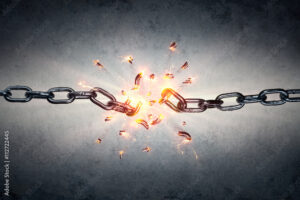
Download Leaving the Cycle of Conflict here: https://goldenageofgaia.com/wp-content/uploads/2024/03/Leaving-the-Cycle-of-Conflict-26.pdf
Exiting the Cycle as a Single
I’m a satisfied single … ok, a happy hermit … so I don’t have the opportunity to pursue the exit points from the cycle of conflict with anyone in the context of relationship.
I have to make changes in myself, which is probably all we need to do anyways!
So my first contribution to ending the cycle of conflict in myself is going to be:
To examine what it means to “get mad.”
There’s a trigger point on one side of which I’m not mad and on the other side of which, I am. Why is it not an easy thing for me to just rule out crossing the line?
I know why. My Dad yelled at me from inches away from my face when I was seven and I shattered …. It took fifty years to put Humpty together again. During those years, I did notice that I fused back together again when I got mad. So I came to value “getting mad.” I was myself again.
It was only the other person who didn’t like it.
So that’s where my below-consciousness embracing of “getting mad” comes from.
Now that I see that, I can let it go. On the other side of it, I feel fine embracing boundaries.
My second contribution is:
To examine what it means to take personal responsibility for my life.
Whenever I blame another person or accept blame from another person, I’m reproducing my Father’s thoughtless pattern. My Father was reproducing my Grandfather’s. I knew my Grandpa.
I need to take responsibility for the pattern and end it in me.
To take complete responsibility for my life – if not for what happens to me necessarily, but definitely for my response – that’s a goal worth aiming for. And that too, I think, would interrupt the cycle of conflict.
It’s as if we all have virtual-reality headmasks on and yet we star in each other’s holodrama. The game decides what our partners do but we decide our responses. All along it remains our virtual-reality game.
This is all my game.
Finally, I took a look to see if I’d ever discussed the subject of the cycle of conflict before and here we are in 2021 looking at my family’s:
“From Vasanas to Scripts,” September 17, 2021, in An Ascension Ethnography at https://goldenageofgaia.com/wp-content/uploads/2023/08/An-Ascension-Ethnography-11.pdf
My family went through a cycle of conflict – mounting disagreement, then a fight, then separation, then making up, then mounting disagreement…. It went on endlessly.
My Dad really believed he was – and had to be – “the man of the house.” He could be arrogant, self-important.
When that happened my Mother invariably responded with disappointment and depression and, surprised at not getting the deference he expected, they fought.
They followed a predictable script and what’s happening for me is that, if one side of their two-handed script gets triggered, the other side comes up with it.
I saw the problem arise after I had a grumpy, irritable thought. I became depressed almost right after it. And I finally … finally recognized what was happening as something I knew well.
I’m recalling how my Dad, when he got in one of his moods, would wreck everything that stood in his path. I now know about the difficulties of his own childhood and can appreciate why he was that way. But it was no fun growing up with it.
I now see myself playing my Dad’s and Mom’s hands, sequentially. I have both inside my mind.
Previously I would have looked for layers in a single vasana – depression is one layer, say; arrogance a second. But this was clearly the family’s circular emotional process having been etched in stone in memory, rather than my own singular reaction pattern or vasana.
“The family’s circular emotional process” is the cycle of conflict.
At the end of it all, bless Mom and Dad. They did the best they could with a pretty bad hand.
***
Thank you for coming along! The subject is just starting for me and represents one of my offerings towards bringing peace to Earth.
Download Leaving the Cycle of Conflict here: https://goldenageofgaia.com/wp-content/uploads/2024/03/Leaving-the-Cycle-of-Conflict-26.pdf
Leaving the Cycle of Conflict 26
